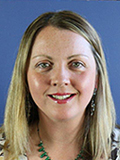 22nd September, 2022 (4:00pm - 5:30pm)
22nd September, 2022 (4:00pm - 5:30pm)
 22nd September, 2022 (4:00pm - 5:30pm)
22nd September, 2022 (4:00pm - 5:30pm)
£40 per individual.
90 minute Online Learning workshop.
Learners who have complex communication support needs and physical difficulties need access to communication aids or AAC (Augmentative and Alternative Communication) that is both efficient and reliable. There are many alternative access methods for AAC devices and communication apps and software including touch access, switch access, eye gaze access and pointer access. So, how can we ensure that learners with both communication and physical access difficulties are using the best access method to enable them to reach their communication potential in school and at home and their local community?
This course will demonstrate the range of access methods available within communication software and apps and discuss the rationale for choosing an access method to trial with a learner, based on real case studies. We will look at how to set up these access methods for individual learners and at the range of communication resources and equipment available for use when developing alternative access skills.
Sorry, this course was held on the
22nd September, 2022.

Joanna Courtney
Specialist Speech and Language Therapist
She has 18 years' experience of working in the field of Augmentative and Alternative Communication, spending her first 7 years working in a Special School. She has an Honours degree (BSc) in Speech and Language Pathology from Queen Margaret University and her particular area of interest is enabling peer interaction and group opportunities for people who use AAC.
Once a month we'll send you an email with news, research and thoughts, as well as training courses and free webinars you may wish to attend.
Our social media sites - YouTube, Twitter and Facebook